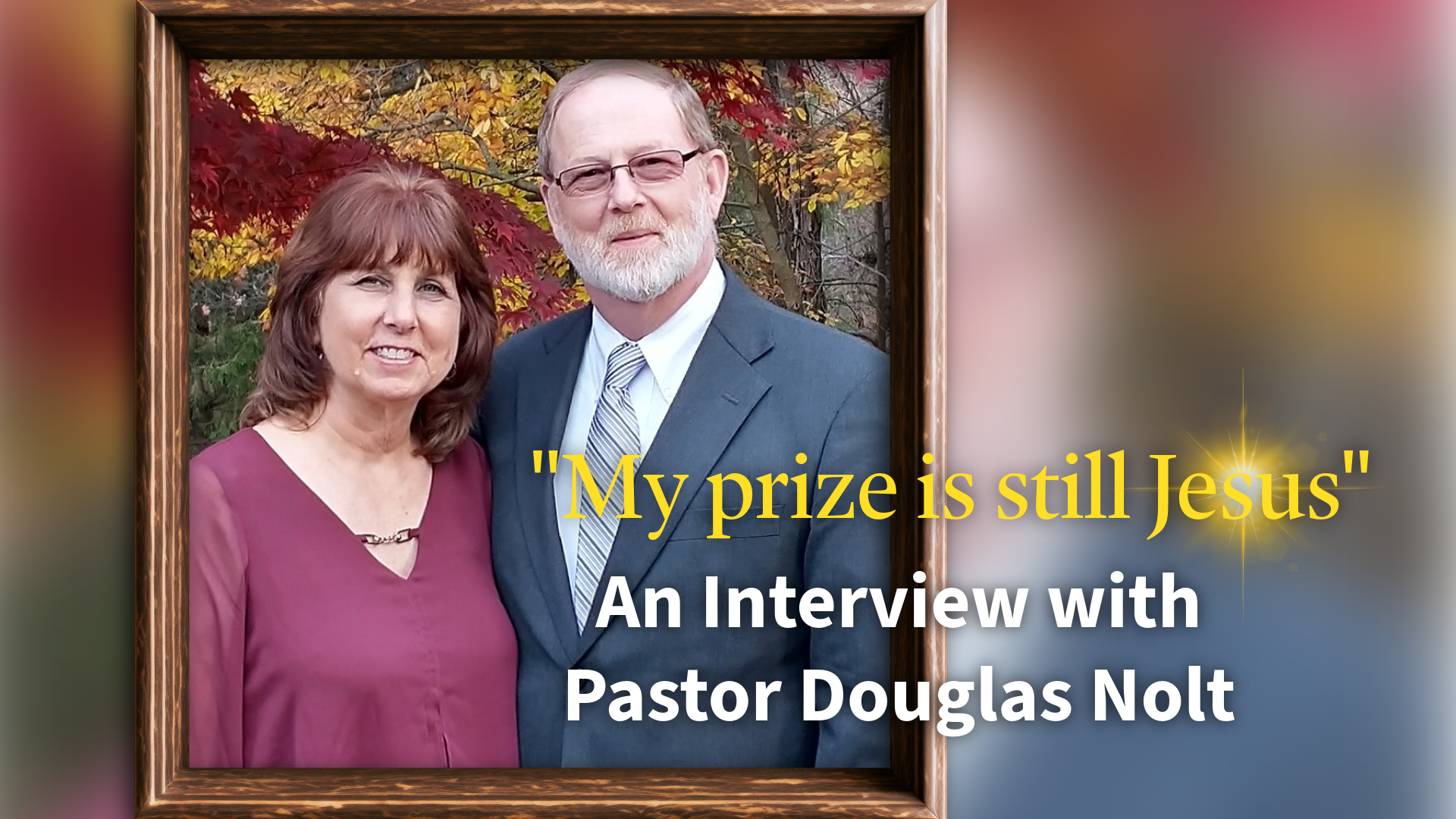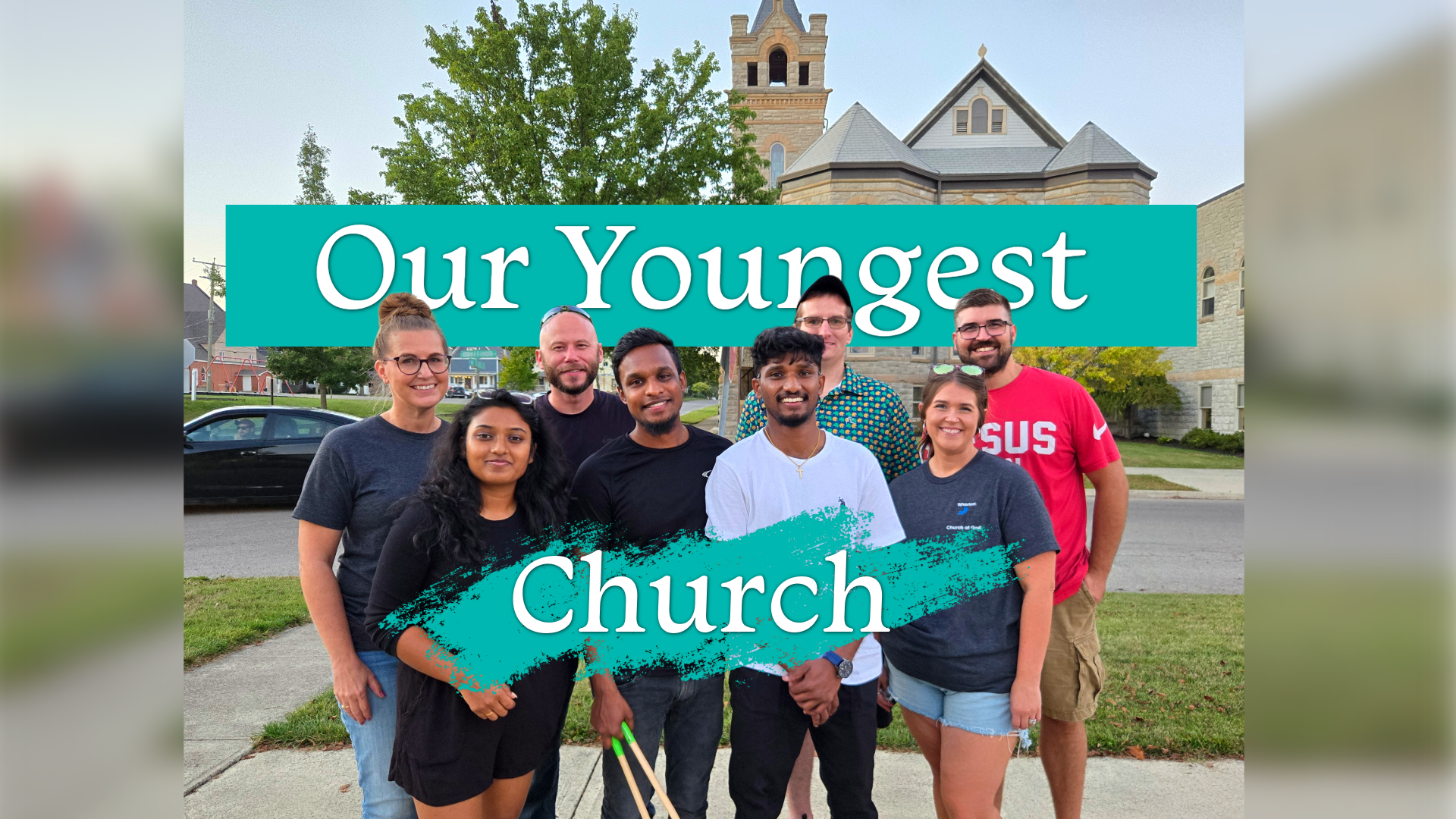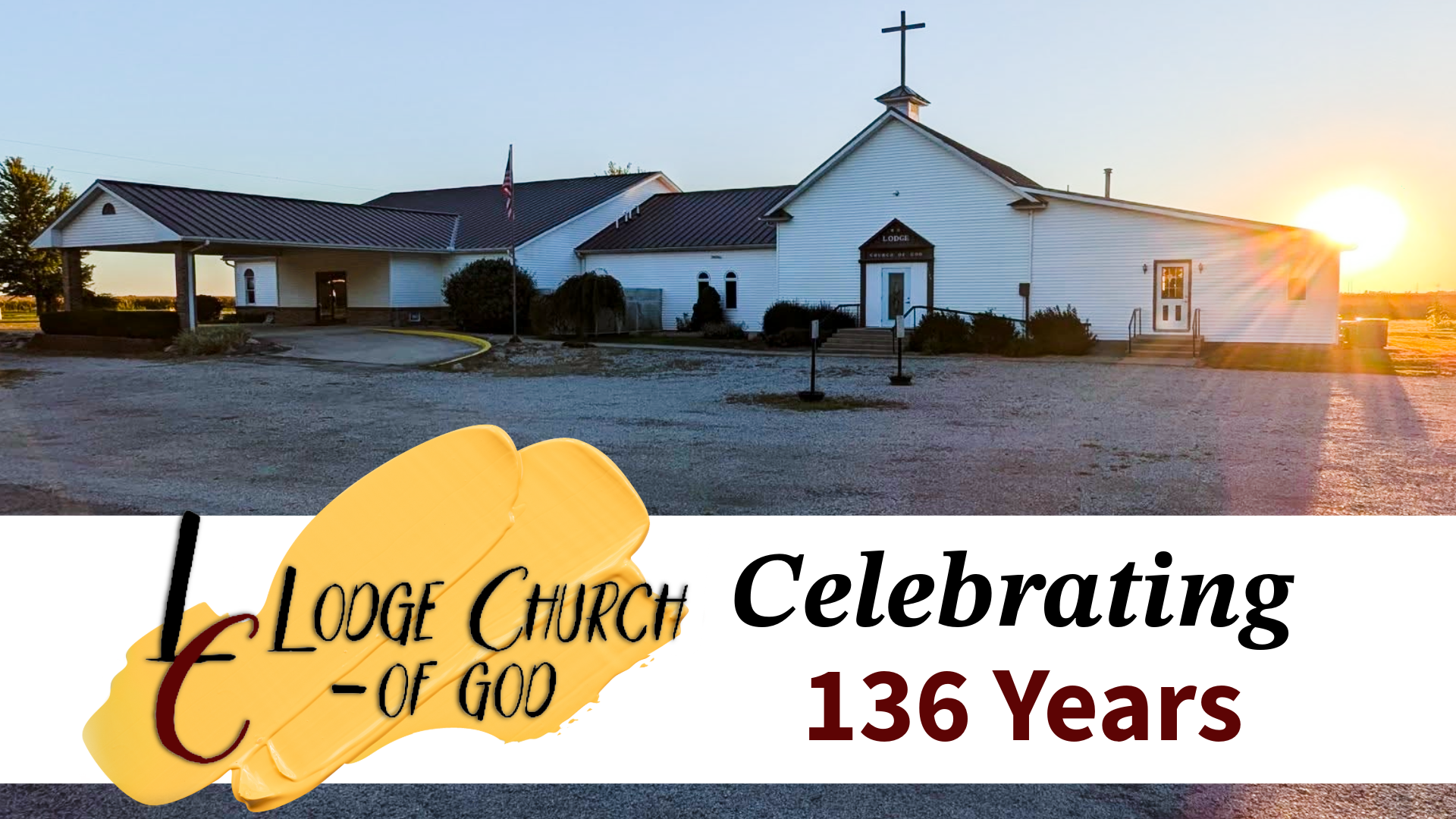
On April 21, 2025, Pastor Douglas Nolt from Indian Head Church of God announced his resignation to the church, with the effective date of July 31st, 2025. Pastor Douglas had served at Indian Head since 2009, and by the end of his tenure would have served in ministry for 45 years!
It’s not every day that we get to draw on the wisdom and experience that comes from over 40 years of ministry to God’s kingdom. And as we move through October, the month of Pastoral appreciation, we wanted to interview Pastor Douglas Nolt, showing appreciation for his many years of faithful service to God, and by extension, appreciation for all of our pastors who have asked the Lord “how can you use me?”
Pastor Douglas Nolt has served in the following ministries:
- Pastor (Rock Run Church of God) Jan 1980 – Dec 1981
- Campus Pastor (University of Findlay) Jan 1983 – Dec 1991
- Interim Pastor (Cairo United Church of Christ) Sep 1992- Dec 1993
- Senior Pastor (Ney Church of God) Jan 1994 – Jul 2009
- Senior Pastor (Indian Head Church of God) Aug 2009 - 2025
You’ve retired technically; do you foresee that you ever stop being a pastor?
You know, Judy and I really don't like the word retirement. I don’t really think you retire from ministry. I've made note to people that what I've retired from is a full-time paycheck.
So, you know, ministry goes on. It may not be at the same level or intensity as what I've experienced, especially in the last 30 plus years in parish ministry, but ministry goes on.
So, you had raised a question, do you ever really retire from ministry? And the answer is no. You step aside from a ministry position, but you still minister and that's every one of us in the body of Christ.
What does ministry look like in retirement?
Okay, what it looks like right now is unpacking boxes.
As we get settled in a house, in a neighborhood, in a community that we were never a part of, and where we have no established affinity with those around us, we'll discover the opportunities for ministry.
But this is what we're experiencing now. It’s what a lot of other people experience within the church. They wind up dealing with the issues of the neighbors, the neighbors’ kids, the neighbors’ dogs, but also the great opportunities. So, I'm at work and trying to build some rapport with my neighbors. We'll see how God leads as to what opportunities we may be presented.
It's a different neighborhood, a different community where we can apply the Word. There's not a person alive that God doesn't love. And if they're valuable to him. Then they should be valuable to me.
I do know that one of the things that I'm called to be and to do is to live Christ where I am.
Talk to me about your background
Part of my background is the fact that I grew up in the church. In the words of my friend Bob Eatherton, “I was Church of God nine months before I was born.”
I'd always been in the church, always been a part of the church and the Churches of God. I trusted Jesus as my Savior when I was nine years old and was baptized and received in the church membership.
After wrestling for several months with God’s direction for my life, it was Friday the 13th of April in 1973 that I surrendered and accepted God’s call to ministry. Now, understand I was 16 years old at the time. So, when you start to play it out, [I am] a sophomore in high school, I've got two more years of high school, four years of college and three years of seminary. And I wound up taking 3 1/2 years to complete seminary. So, really it was 9 1/2 years of schooling that I had ahead of me before I even got to the point of being examined and interviewed and then to receive ordination.
That's all a part of that calling, but it was a matter of keeping the eye on the prize and that's what I continue to do. I keep my eye on the prize because it wasn't the achievement of degrees or the credentials from the Church. My prize is still Jesus.
So that calling to ministry, affirmed by the Conference, my pastors and my church is one thing that quite literally carried me through all of the seasons of ministry. I have never looked back on that calling with regret.
Over the course of your ministry, what things in local church ministry have entirely changed?
The Pandemic’s effect on churches
In 2020 when the pandemic hit, so many churches took so many different stances and positions. They made modifications to the way that they did ministry, and in some cases they made no adaptations in order to show the world, the government, and whoever else, “We are not changing because God doesn't change”.
One of the important pieces that I had heard at that point in time and was resonant with some of my own feelings, and that is “We've never been here before.”
Now what does this look like? There were new ministries that developed. There were changes and adaptations. And you know what? When we got to the end of 2020, we said “that's good, we keep it. That's not so good, how do we adapt it.”
Slow to Change
So, we learn to make the changes. And quite honestly, I think that that's what God has always wanted for the church. He's always wanted us to be there on the edge of, “How can we do this? How can we do this better? How can we be more effective?”
I think we've continually tried to see what changes and adaptations we can make because the world is changing around us. Sometimes we get it right and sometimes we don't. But when we don't get it right, it’s only an opportunity for us to reassess and retool and go at it again.
Unfortunately, the church is slow to change and adapt. There's a phrase that I've used which really was influenced by Rick Rusaw’s Externally Focused Church. “The church is a big ship.” I think it's something like 18 miles that it takes to do a 180 degree turn for an oil tanker, by comparison a speedboat can turn on a dime. So, just understanding that the church is larger than a speedboat, most of the time, as the church, we're slow to adapt or to make changes.
Changing culture, changing church
There was a time when the Western world respected church leaders and church ministries. The community well knew Wednesday night was special and even the schools didn't have programs on Wednesday nights. Now Sunday morning is not even sacred. And the expectation of coaches is that “If you're going to play on my team, then you're going to show up when I say that we're having practice. And that starts at 10:30 Sunday morning.”
There used to be such dedication within the church. Thinking of my experiences in my earlier years where church families would then say, “Okay, well then we don't participate.”
Their devotion and dedication was to the church, was to the Lord. Now it's “Gee, church, why don't you change so that we can accommodate and go and do these things?”
We've moved from a time of deepest dedication to a time of living with and living out syncretism. I will admit that it is a tough thing, and that I find it sad. And it's not the sadness that the community doesn't hold or respect the time schedule of the church as much as it is that many within the church have moved over to syncretism. So, “my church life is just another element of my life.”
Advice for Pastors during this changing season
I have two pieces of advice. Both of them are Scripture. First Proverbs 3:5-6
“Trust in the Lord with all your heart
and lean not on your own understanding
in all your ways acknowledge Him.
And he will make your path straight.”
We live in a time where there is flux. Trust in the Lord. God has called us into ministry. He's called us to be pastors. He's called us into seasons, even seasons of change. We need to trust in Him.
Second, I was thinking about this this morning, from Ecclesiastes. Solomon makes note and says in Ecclesiastes 1:9-11:
“What has been will be again,
What has been done will be done again;
There is nothing new under the sun.
Is there anything of which we can one can say,
“Look, this is something new”?
It was here already, long ago;
it was here before our time.
There is no remembrance of men of old,
and even those who are yet to come
will not be remembered
by those who follow.”
This is the bottom line on it: it's today, but it's not a hopeless side of today. It is today in the context of eternity. How are you allowing God to work in your life today? What is God going to do with today? Or what are you going to give to God to do with today?
Is there a story or moment that sort of encapsulates your ministry and what you feel your call was?
I have always looked and valued to see change, to see transformation, in a person's life. When that genuine transformation by God takes hold.
So let me tell you the story of my friend Don. We had a mutual friend, Jerry. He was a part of our church. Jerry and Don rode motorcycles together.
Jerry had grown in his relationship with Christ, and he was one of our leaders at the church. We had a friend and leader at the church, Todd.
Don, a year prior to this experience, had been in a bad motorcycle accident and the church was praying for Don. There was a real concern that Don would die in all of this. He made a recovery but so many people had gotten to know him at church through Jerry.
Early one Friday evening there had been a party at Jerry's place for his kids and we had a little campfire going. Todd and I were going off to the football game. Jerry said. “Hey, Don called me and he's coming over. I think Don wants to have a conversation. Would you stay?” So, we both stayed. Don arrived and it was just the four of us sitting around the campfire and talking. Don had a lot of different questions about Jesus and about faith.
It was a thrill hearing Don raise those questions of faith. But even greater excitement came when Todd and Jerry realized Don’s readiness to trust Jesus, and Todd looked at me and I didn't even have to say a thing. Todd just knew my nod.
He responded to Don, “It's as simple as ABC.” Something I had taught at the church and have for a lot of years since I've learned it. That's the introduction to sharing the plan of salvation, “It's as simple as ABC.” I would end many sermons with “It's as simple as ABC. A is to acknowledge that you're a sinner. B is to believe that Jesus Christ came to die for your sins. And C is to confess him as your Savior and Lord.”
That night Todd and Jerry led Don to trust in Christ. And I got to witness it. Two men of my church stepped up and lead another man to Christ.
That is the victory. There was a victory for Don in trusting Christ, but there was also a victory for Jerry and Todd that night as they shared Christ, and there was a victory for me in witnessing God’s transforming grace in all three. So, when you ask, is there a story encapsulates your ministry? That was it!
Privilege of being a pastor
One of the greatest privileges of being a pastor is to be invited into people's lives at significant times and moments, whether it was in doing and celebrating weddings, child dedications, special and significant birthdays. We've been invited to people's homes for dinners and picnics with their family and their extended families. And to be invited to share in people's lives. But also one of the hardest things is having to walk through some of the deepest waters with them too. You know, it's a privilege.
Is there a piece of scripture or a piece of advice or a principle that stood the test of time or carried you through your ministry?
Pastor Larry White shared this statement with me and I have had the opportunity to share it with others along the way. And the statement was:
“A man of integrity wants to be believed, and when he is not, he allows time to prove him right.”
Larry had shared that statement with me, and I know directly some of his history, that when he was going through deep waters at a church that someone had shared that with him. So, it carried even greater meaning knowing that. Going through some tough spots in ministry when he shared that with me, I understood what he was saying was “you just continue to hold in there and to do what God has called you to do. Allow God to take and carry things forward for you.”
The last piece is this verse of scripture that I've held to longer than my call of ministry. It’s from Ephesians 4. Ephesians 4 has always been special to me because it calls for the unity of the church.
There's enough things that go on in the world to divide us. We don't need to have the church to be divided. And so, the unity of the church is special and precious.
But Paul says then in verses 11 and 12:
“It was he who gave some to be apostles, some to be prophets, some to be evangelists, and some to be pastors and teachers. To prepare God's people for works of service so that the body of Christ may be built up.”
And we're going to be built up until we all reach the full maturity and unity in Christ. That's the key. Those two verses lay out for me both my calling as well as my responsibility, and that is to prepare God's people for works of service. To prepare God's people for works of service so that the body of Christ is built up, so it's not all on me. It's on all of us.
CGGC eNews—Vol. 19, No. 40





Login To Leave Comment